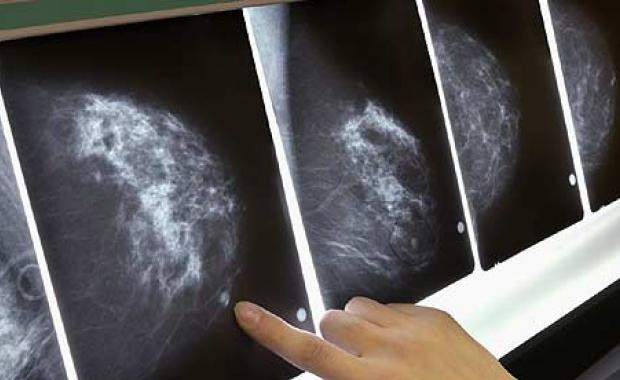Find new ways to treat breast cancer
A new study that just adds a way to treat breast cancer is evil is gaining medical attention worldwide.
Accordingly, scientists at Baylor Medical School, Washington University School of Medicine and the Broad of MIT & Harvard Institute have developed a new way to treat breast cancer by targeting responsible proteins. causes breast cancer tumors and then uses specific reagents to neutralize, or biological control of that protein.

Dr. Matthew Ellis, professor and director of Lester Cancer Center and Sue Smith in Baylor said: " Here we have studied the problem of how to find effective cancer treatments. more by a two-sided approach, "he said in a press release . " We combined alveolar graft derived from patients and then for proteogenomic integration ".
To reach this conclusion, the team took a sample of cancerous tumors on the human body and transplanted it into mice in the laboratory environment.
' We will develop patients' tumors in the experimental environment and it will condition and mimic normal development as in mice from the action of the heart's rhythm, arteries arise. as well as creating biological structures that cause disease. It's natural that we have to do to prepare for the experiment . " - Ellis said.

" We think this method will give a closer description of tumor growth environments to study the creation of more cancer drugs in the future ."
When conducting a successful transplant study, the team found that genes and proteins in the original cancerous tumor in the human body began to tolerate and proliferate on the body. mouse.
Most of them are targeted proteins that are capable of producing other metastatic breast cancer.
" These target proteins perform most biological functions in cancer cells, " said Dr Li Ding, associate professor of medicine at Washington University School of Medicine.
At this time, the research group used mass spectrometry technology, which is one of the leading technologies in determining, qualifying and quantifying proteins in each of the 24 patient-derived cancerous fibers. mouse. And the results showed that the group has identified 10,000 different proteins that exist and dominate cancer tumors in many mutant sizes .
We think that we can target these target rogue proteins, then proceed to neutralize their ability to function, or otherwise take up their biological controller, from which they We can inhibit the growth of metastatic cancer.
" In addition, there are a significant number of these proteins identified in the xenograft model, which are potential proteins that can be used to make medicine, " Ellis said in a statement.
' And finally, the discovery of these target protein markers observed in breast cancer cell samples will be an important premise for the research team to carry out practical clinical trials in the future. .
This research has just been published in Nature Communications.
You should read it
- ★ Unexpected discovery: Breast cancer is associated with bacterial imbalance in breast tissue
- ★ Science uses dogs to directly study breast cancer
- ★ IBM researchers analyzed breast cancer cell structure with AI
- ★ Protein analysis in breast milk helps detect breast cancer early
- ★ Researchers have figured out how breast cancer spreads to the brain